Listen to the sound will be able to identify common pneumatic equipment operation, this is mainly due to the operation of the equipment vibration or noise is not some normal performance, therefore, by listening to the sound, you can check for some mobile devices, to identify whether a fault.
1. Abnormal noise of rotating equipment
The common causes of noise are as follows:
The internal components of the valve were corrosion;
Have a pump;
Have a high power pump low load operation;
Have a surge of centrifugal compressor;
Have a heat exchanger plate rupture;
Have a one-way valve noise;
Have a control of screaming;
Have a steam pipeline water hammer.
1. Compressor
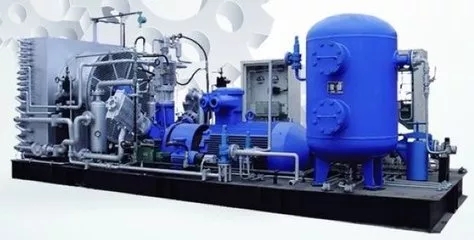
The noise of compressor is divided into the noise of centrifugal compressor and piston compressor, which is mainly composed of the aerodynamic noise of main engine and the mechanical noise of auxiliary machine. The noise measured normally is 84~102 decibels.
Have a centrifugal compressor noise
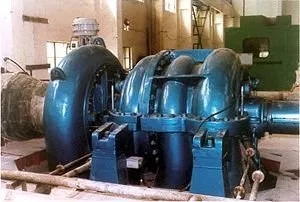
When a centrifugal compressor is surging, a deep and roaring noise will be issued on a regular basis every few seconds. At this time, the compressor is in unstable state, the rotor is sliding between the bearings, and the horizontal movement of the thrust bearing and rotor inevitably damage the compressor shaft seal.
Each surge indicates a further slip of the rotor between bearings. The higher the sound of the surge, the stronger the horizontal direction of the rotor will be, and the greater the damage will result from light surge to the complete self destruction of the compressor.
In general, a machine rotates in the 3000r/min more than the 8000r/min rotation to prevent the surge.
Causes and remedies that cause surges:
A, discharge pressure is too high
The receiver of the compressor rear cooler is emptied to reduce the pressure or to open the cooling water valve into the rear cooler.
B, low pumping rate
Open anti surge so that the released gas can return to the intake end of the compressor.
C, high temperature of inhalation gas
Most of the devices are equipped with a small amount of light liquid hydrocarbon facilities upstream of the suction inlet of the compressor. Liquid evaporation cooling the hot air flow of the suction compressor, or upstream process can reduce the gas temperature entering the compressor.
Have a piston compressor noise
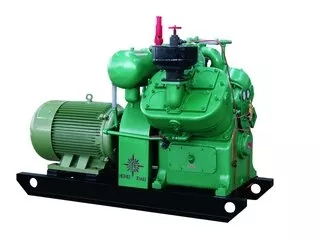
The noise and vibration of piston compressors are mainly mechanical reasons. At the same time, due to the blowdown of the process, the noise of oil and water will also cause noise.
If A and valve cuts and springs break, it will cause pressure and temperature changes at the inlet and outlet of the compressor. At the same time, we will hear hissing noise when we hear the damaged gas valve with the stick.
B, if the gap rotating components of the compressor are not appropriate, such as cross head, head, head of the tile tile gap is too large or too small, the compressor in the rotation will be issued a thunderous sound.
C, some of which fall into the cylinder of the compressor mechanical impurity clearance or piston and cylinder head is too small, the compressor when rotating in the cylinder will be issued “ Dangdang ” metal rattle, should immediately stop this sound when maintenance. Otherwise, there will be a major damage to the equipment.
D, because the process of sewage disposal is not timely, oil and water into the cylinder will be liquid hammer, liquid hammer sound is “ a ” the sound, then they should strengthen the sewage, but also serious when parking maintenance liquid hammer.
In some chemical factories, the production accidents of the piston and cylinder head were destroyed by the disintegration of the valve and falling into the cylinder. So in the production practice, we can judge whether the compressor is running or not according to the different sound of the compression.
2. Pump
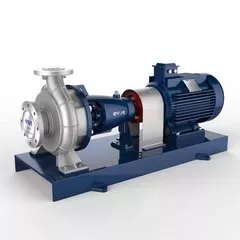
The main source of the noise of the pump is the noise of the motor, the motor, the electromagnetic noise caused by the electromagnetic vibration of the motor itself, the aerodynamic noise and the mechanical noise caused by the tail fan, and the three parts. It's usually 83~105 decibels.
The abnormal noise and vibration of the pump are mainly caused by pumping empty, the pump capacity is too large, the pump's cavitation erosion and so on.
Have a pump
The sound of centrifugal pump vibrate is due to evacuation, which means that the pressure of pumping is not enough to prevent the vaporization of the liquid in the pump. When the bubble is broken, it will cause vibration. If the pump continues, the shaft seal, bearing bush and impeller of the pump will be damaged.
The fastest way to stop pumping is to throttle the outlet of the pump to reduce the flow rate, and then raise the liquid level of the pump's suction tank, and then directly stop the pump. The best way is to interlock the liquid between the pump and the extraction tank.
Have a pump cavitation
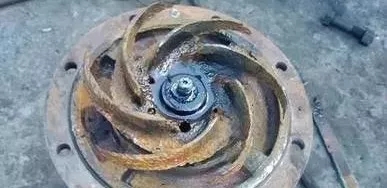
The noise and vibration produced by cavitation happen. Under the repeated action of huge impact force, the surface fatigue of impeller starts from pitting to form a serious honeycomb cavity, which causes impeller damage.
In addition, when the cavitation is serious, a large number of bubbles occupy part of the space of the liquid channel, resulting in a drop in the flow pressure head and efficiency of the pump. Therefore, in order to make the pump run normally, the minimum pressure of the impeller inlet must be maintained at a critical value, and the lowest pressure should be greater than the saturated vapor pressure of the liquid under the transmission temperature. When the cavitation occurs in the actual operation, the pump should be discharged immediately and the gas inside is discharged.
Have a pump capacity is too large
Large capacity pump in reducing capacity, operation process will often make low and dumb voice, this is mainly due to the impeller inside the internal circulation caused by the long term, this will make the impeller is damaged, the only way is to increase the flow of exports.
For any rotating equipment with excessive vibration, its work should be stopped immediately before the pump is damaged.
Two. Abnormal noise and vibration of valves and pipes
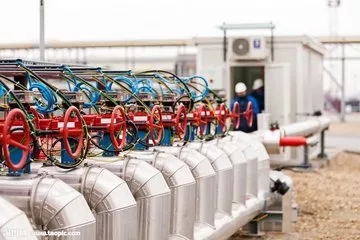
The noise of the valve and pipe is mainly the noise of the friction line with the pressure gas, or the disturbance of the surrounding gas caused by the sudden depressurization.The noise of the valve is mainly due to the following reasons:
1, the noise produced by the vibration of the check valve;
2, the seat falls into the foreign body;
3. The high speed liquid makes the valve damaged.
4. The switch valve is used as a control valve.
5. Leakage of gate valve.
Have a check valve noise due to vibration
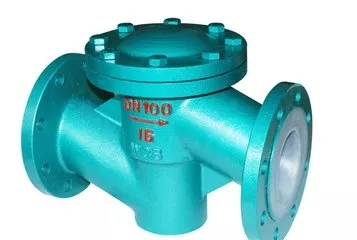
Mainly from the lift check valve in general, compressor and pump outlet safety check valve, its purpose is to prevent the high pressure gas and liquid system in compressor and pump.
Gas compressor discharge is fluctuating, it will cause the outlet check valve spool irregular motion in the body, it will produce a lot of noise, the guide sleeve will wear long check valve, serious when the guide sleeve will rupture, serious impact on production.
In production practice, the outlet of the compressor with a swing check valve can basically overcome the noise produced by the pulsation of the compressor air flow.
Some chemical plants have succeeded in remaking the exit check valves of the transformation compressor to completely eliminate the vibration and noise of the check valves.
Another case of noise produced by check valves is that the pressure difference before and after check valves is relatively large, which is also encountered in actual production.
When the front and back pressure difference of the check valve is greater than 0.5 kilograms, the hydrogen making check valve vibrates very badly and makes a sound metal touching the metal.
It is found that the wear of the guide sleeve of the check valve is very serious and seriously affects the long period operation of the device when the hydrogen production check valve is overhauled. If the check valve is changed into a program control valve, this problem can be basically solved.
Have a control valve screaming
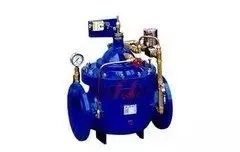
The control valve in good condition should be able to shut normally. When the control valve is completely closed, it will make a dull noise, which means that the liquid leaks through controlling the valve seat. If the pressure drop of the valve is larger, the noise can be very high. A small stone, screw, slag, etc. can be stuck on the valve to make the valve close.
Noise indicates that a high speed fluid flows through the valve. If it goes on for a long time, it will wear the valve body. If the valve can not be removed and repaired, the best way is to reduce the pressure of the upstream pipeline.
If the normal working position of the control valve is closed, it often produces noise, and the pressure drop through the valve is very large. When the gas liquid mixture throttled through the control valve, it will generate vibration. If the temperature of the fluid is reduced, the vibration will decrease.
- END -
Source: valve control
Disclaimer: the picture comes from the network, and the copyright of the picture is owned by the author.







